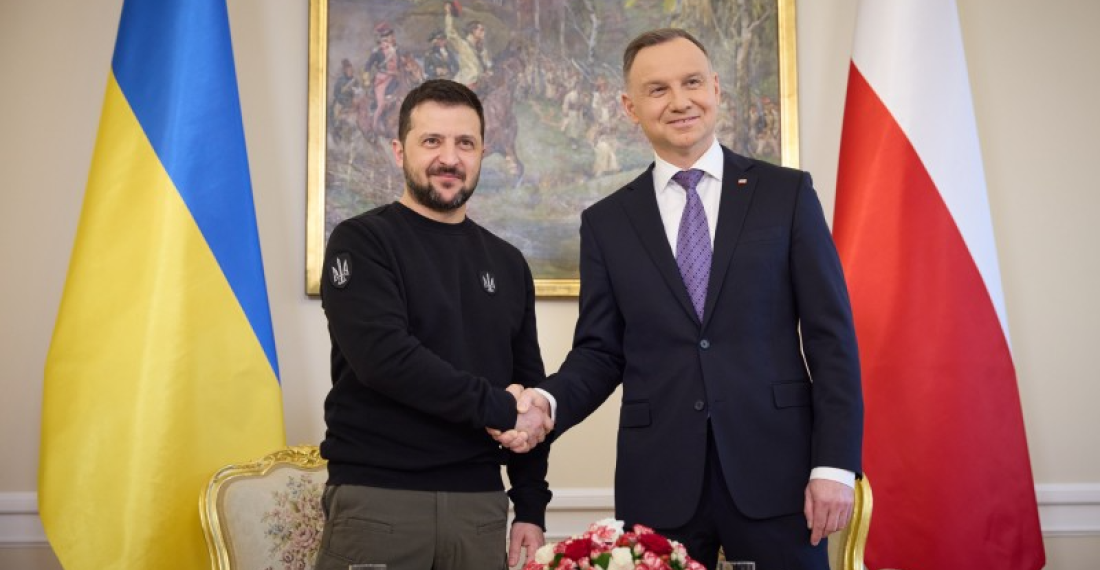Poland has announced a swathe of new military aid to Ukraine as Ukrainian President Volodymyr Zelensky visited Warsaw on Wednesday (5 April).
Speaking in Warsaw, Zelensky announced that he and his Polish counterpart Andrzej Duda had agreed on the supply of armoured personnel carriers, self-propelled mortars and air defense systems. Additionally, President Duda announced that Poland will increase its donation of Soviet-era MiG-29 fighter jets to 14.
Poland had previously donated four, has prepared to transfer four more, and is currently preparing to transfer six further jets that "can be transferred quite soon", according to President Duda.
This is on top of 13 MiG-29 fighter jets that had been previously pledged by Slovakia.
During the same visit, Poland and Ukraine also signed a joint memorandum on the reconstruction of war-damaged areas of Ukraine as well as on the production of 125mm tank rounds.
On the same day, the Czech Republic also pledged a package of military aid worth $30m, including equipment that was currently in storage and "not needed" for the country's defense, according to Czech Defense Minister Jana Černochová.
"You [...] did not and do not allow us to break"
Speaking in a joint press conference after their meeting, President Zelensky said, "Today, we are in really strong relations — not just pragmatic, but human relations. This is very important in historical and any other issues, which, I am sure, we will definitely resolve."
"I want to thank you for the fact that you, our powerful neighbors, did not and do not allow us to break, you help us. If Ukraine falls, we know Russia will not stop there and will go further."
Meanwhile the Polish Prime Minister Mateusz Morawieck said, "Poles know the great value of freedom and solidarity, so we support Ukrainians in their struggle. The security of the whole of Europe and the security of Poland are also at stake in this war."







